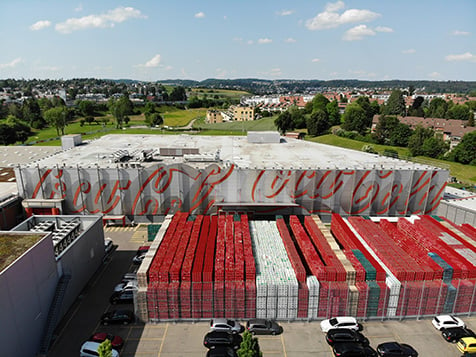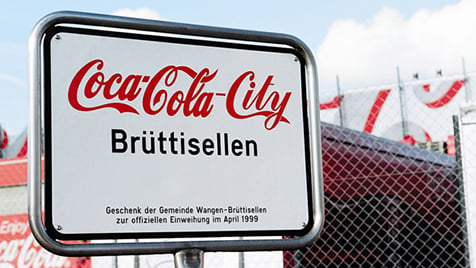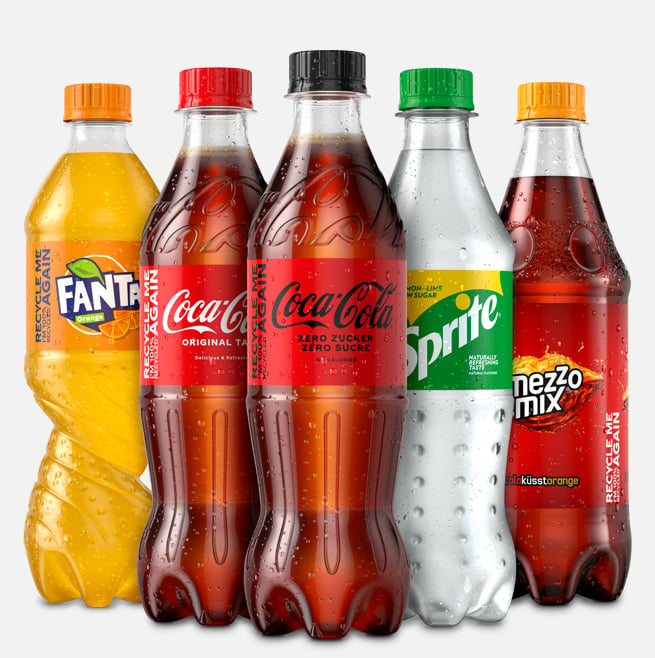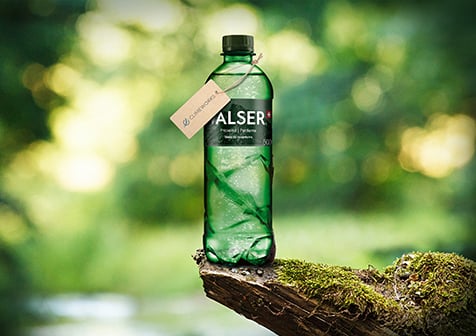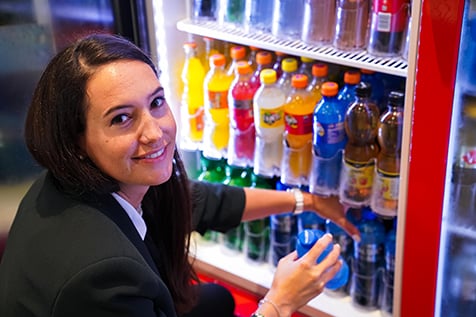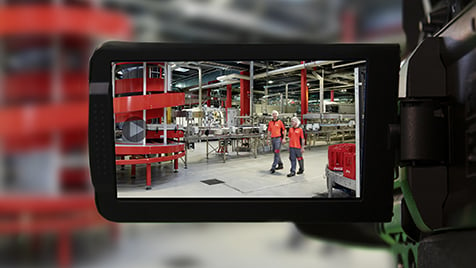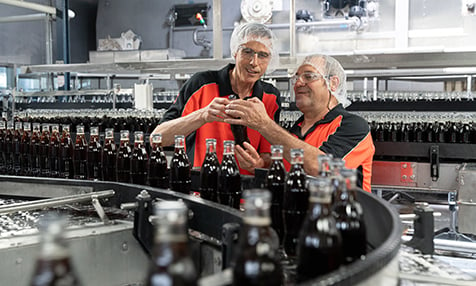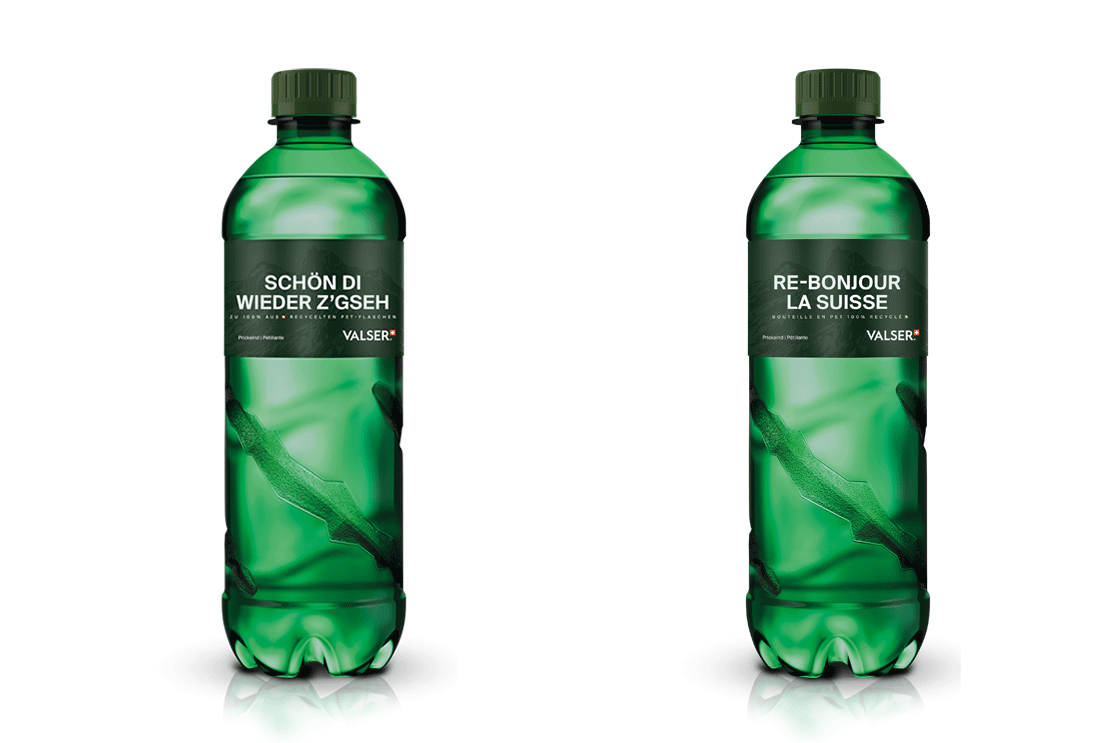VALSER is Switzerland’s most sustainable mineral water. That’s because of the introduction of 100% rPET* – but that’s not all. The traditional brand already became a pioneer in terms of sustainability through its targeted work with local partners. The fizz in the water, for example, comes from Climeworks, an ETH spinoff that extracts the CO₂ from the air. VALSER also cooperates with well-known institutions like consulting firm Swiss Climate and Swiss development organization Helvetas.
100% rPET*: a historic step
Now VALSER is going even farther, becoming the first Swiss mineral water to shift to 100% recycled PET*. The launch is due to start immediately, with the 0.5-liter bottle of VALSER Sparkling. All PET bottles will consist of 100% recycled material* by the fall of 2019. This is a historic step, not just in a national context, but also internationally. After all, very few beverage manufacturers have managed to introduce 100% rPET to date*. In fact, most beverage manufacturers still do not use rPET at all, instead using exclusively new PET for their bottles. One of the factors that have made this change possible is that the Swiss population is highly disciplined about recycling. 82% of all PET bottles are already returned today. Rapid technological advances are now helping to make it possible to use rPET to a larger extent.
